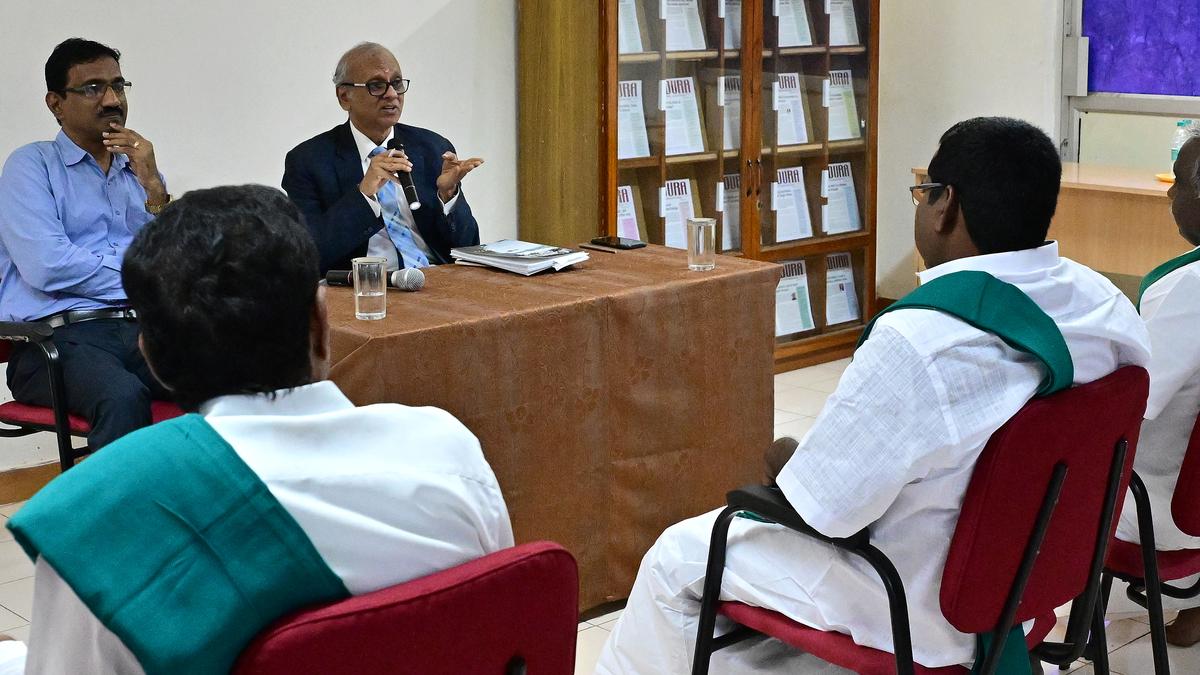
Courts not the answer to every dispute: K. Kannan, former judge of Punjab and Haryana HC
The Hindu
Former judge K. Kannan emphasizes mediation over court disputes in resolving the longstanding Cauvery river water issue.
Former judge of the Punjab and Haryana High Court K. Kannan, on Wednesday said that courts are not really the answer to every dispute.
Participating in a discussion on the recently-launched book Cauvery – A Long-winded Dispute, published by The Hindu and written by its senior associate editor T. Ramakrishnan, the former judge contended that no judge could take “a view which is permanent.”
The 2018 judgement of the Supreme Court, which was “perhaps not the last order [on the dispute],” had created a “favourable climate.” But, what mattered was “power to people, power to stakeholders.” He emphasised the importance of mediation and dialogue among the stakeholders.
Addressing the gathering at the Press Institute of India (PII) at Taramani here, Mr. Kannan decried the tendency to go to court without exhausting the option of discussion. He referred to the Mullaperiyar dispute and the proposed check dam project of Kerala on the Silandhi river.
Appreciating the book, he said Mr. Ramakrishnan had traced the genesis of the dispute to a protest by farmers of the Madras Presidency in 1806. Photographs, portraying the involvement of a large number of workers during the construction of dams, bonhomie between Chief Ministers of Tamil Nadu and Karnataka M.G.Ramachandran and Ramakrishna Hegde and the mood of anger during a bandh, had been carefully chosen. The Cauvery was not just about water, people were emotionally connected to it.
Recalling what former Chief Minister Jayalalithaa said about the river dispute: Tamil Nadu is not the drainage canal for Karnataka, Mr. Kannan explained about the lower riparian State’s right over the river water, as the land under cultivation had always been larger here in Tamil Nadu.
Expressing concern over the ecological imbalance in the river basin, Mr. Ramakrishnan said the issue of denudation of vegetation in the basin over the years, indiscriminate pollution and excessive mining of river sand had to be addressed effectively and in these matters, there was no conflict between the States.





















 Run 3 Space | Play Space Running Game
Run 3 Space | Play Space Running Game Traffic Jam 3D | Online Racing Game
Traffic Jam 3D | Online Racing Game Duck Hunt | Play Old Classic Game
Duck Hunt | Play Old Classic Game











